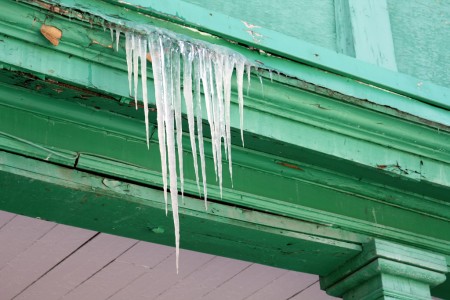
In my experience, Ottawa has a pretty standard multi-level system to how cold it is in any particular environment. This is reflected on two scales: a static scale based on how cold you would feel in ordinary indoor clothes and a dynamic scale based on what you were wearing in order to deal with the conditions shortly before.
This is the dynamic scale:
- The hottest part of the scale is where you are seriously bundled up and unexpectedly delayed in a warm environment. For instance, you hop onto a bus to go a couple of stops and it gets stuck in traffic. You are about to go out, so you don’t want to disrobe, but remaining in the heat is very uncomfortable.
- The level varies depending on the amount of wind. Sometimes, it is the ordinary transition from being outdoors to being in a warm building or vehicle. Sometimes, it is the transition from being somewhere windy to being somewhere outside but protected. In some cases, the latter transition is actually far harsher. There have been times when after waiting for a bus in an exposed area, I moved to a covered area and felt almost as warm as in the topmost scenario above.
- Below those is the neutral level, in which you are basically adequately dressed for your surroundings and can operate comfortably for a good period of time at your current level of activity.
- The next level is cold due to something lacking: either the result of being slightly less active than you were recently, or because you are missing one or two items that would make you comfortable. For me, those things are most often a hat, adequate gloves, or warm socks overlapping with long johns.
- The next level is being significantly cold temporarily, either while your body heat spreads through clothing you just put on or while you ramp up to whatever stable level of physical activity you will be maintaining.
- With the next level, minor persistent suffering arrives. Usually, this is the result of poor planning. Most often, this is a case of not expecting to leave a place as late as you did and ending up walking by night instead of by evening. Wind of unexpected ferocity can also cause this.
- Beyond that, the levels aren’t really distinct. At the extreme edge – which I have experienced once or twice – you are actually cursing your way through savage winds from doorway to doorway. In this situation, you will actually feel that injury (and ultimately death) will result before long if you remain out in the cold and wind.
In my experience, the best way of coping with all this is to be prepared, try to anticipate the conditions in which you will find yourself, and dress in ways that are conducive to moving both up and down the scale. Having long johns, a wicking layer, two fleece layers, and a wind/waterproof outer is a lot better than having a wicking layer, one absurdly warm layer, and a shell. The former lets you move through the scale in one-step increments, while the latter commits you to two or more.
One odd consequence of the relationship between warmth and activity can be just how much those of us with stingy thermostats need to wear in order to sleep comfortably. On nights where walking around in moderate garb is perfectly tolerable, actually sleeping in my flat may require two wool hats, long johns, trousers, a fleece, two pairs of warm socks, a fleece sleeping bag liner, and a down duvet. The question then becomes whether you will be woken by cold as the night progresses (likely if you went to sleep early), or by unbearable heat when the sun finally starts to thaw the city at dawn.


